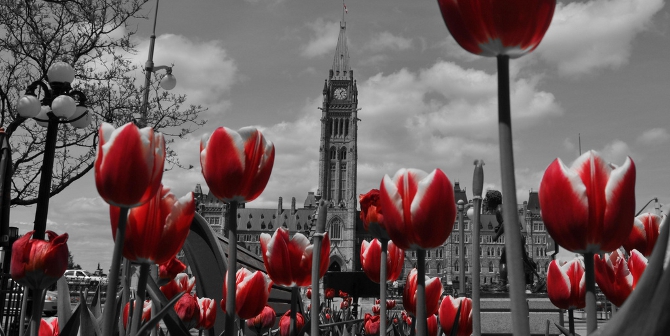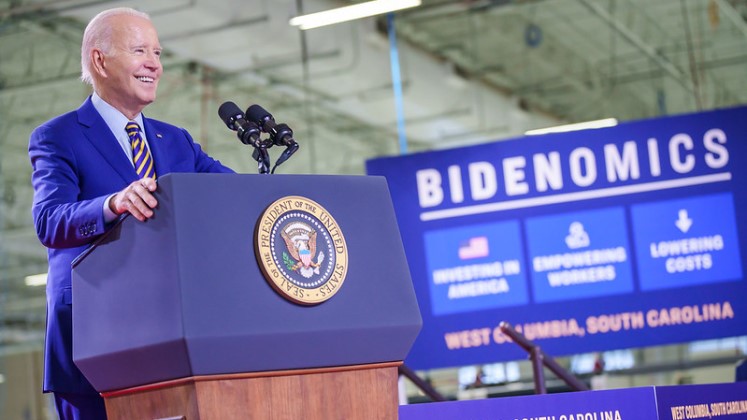 The UK’s decision to leave the European Union and Donald Trump’s election as President of the United States have been cited by some commentators as proof that the West is turning away from liberal values. Tahir Abbas argues that in the aftermath of Brexit and Trump, supporters of liberalism require a new movement aimed at reaching a unitary consensus that resists division.
The UK’s decision to leave the European Union and Donald Trump’s election as President of the United States have been cited by some commentators as proof that the West is turning away from liberal values. Tahir Abbas argues that in the aftermath of Brexit and Trump, supporters of liberalism require a new movement aimed at reaching a unitary consensus that resists division.
In the wake of the US election, much has been stated about the failure of the liberal left. Arguments abound suggesting that the liberal left is to blame for Trump’s victory as they were unable to engage with inclusive ideas or that their consistent emphasis on those confined to the margins of society, namely the poor, disabled, immigrants or minorities, has led to the ineffectiveness of leftist critical thinking. It has been accused of being unable to find adequate systems of knowledge and practice to engage with an intellectual and political process necessary to build holistic ideas and solutions.
By concentrating energy on the margins of society and at the margin of social and political discussion, it is seen as ultimately redundant in a world where self-interest has triumphed. However, there is a fundamental flaw with this approach as it suggests that criticism of inequalities and injustices are responsible for pushing people apart, not together. The idea of a series of arguments on the nature of complex social relations being responsible for the existence of those problematic social outcomes is completely nonsensical.
Nevertheless, there are aspects of left-leaning thinking that have created inaction. Indeed, the ‘silent majority’ spoke out to produce Trump’s victory and Brexit earlier in the year. This silent majority consists of people who feel they have been ‘left behind’, not just in the race for economic success, but also in discussions of what it is to be part of nations competing on the global stage. However, the rage of this body of the population thrives in spaces where there is no national consensus on political identity, social cohesion or concepts of equality within fraternity.
Political leaders believe that neoliberal globalisation is the only mechanism through which to improve profits at home, compete for recognition on the international stage and have a voice among the giants of the United States, China, India, Russia and the EU. But globalisation connects only the few, not the many. And it does so at the expense of the many. By plumping for Trump and Brexit, voters believed theirs was a scream against the system and a rejection of the establishment. In reality, political elites took advantage of the left behind by making empty promises. With all the blustering rhetoric emerging from prominent Brexiteers and Trumpists, their intention is not to speak or act for the people as a whole, but only in the interests of the top strata of society. The people were duped.
In the early 1970s, there was a discernible emphasis on race equality and antiracism in Western Europe and America, but later in the decade, it was shelved in favour of increased attention on multiculturalism. This involved respect and tolerance for differences in society while maintaining national unity under an umbrella-coalition of shared values and principles. Such amiable ambitions neglected racial and ethnic inequality, leaving the structural determinants of racism and discrimination unchecked. Save for fluffy, light doses of celebrating differences for a day or two in the year under the banner of multicultural policy, little else was done.
The intellectual classes were preoccupied by a liberal fantasy. Much of the population shared this sentiment and appreciated the need to embrace a global world and the opportunities that it would bring for western societies struggling with post-industrialisation. However, after 9/11 multiculturalism was seen as having failed to bring about wider social cohesion. By the late 2000s, it was being utterly ridiculed not just by the hard left and the centre-left, but also by the hard right and certainly the far right who were able to play on the lack of synergy that the idea of multiculturalism had created.
Globalisation, rather than increasing openness to differences in society, has created the opposite effect. Furthermore, many people care deeply about their futures but western governments are unable to bridge the gap between expectations and reality. The events of 9/11 and the emergence of the global ‘war on terror’ fundamentally eliminated any focus on ethnic inequality, social capital or social cohesion. All the while, the demographic trends of the world grow wider into the seemingly impervious categories of East and West, North and South.
In relation to Muslim minorities in Western Europe, they are increasingly visible because of their various urban population concentrations and their particular experiences of exclusion, alienation and political violence. The only real progress has been on gender equality, but even here there are issues. Hillary Clinton lost the US presidential election, in part, because the dominant misogynistic undertones in the media and political landscape of American politics were hostile to the idea of a woman as the leader of the free world.
While generalisations can be made, it is also true that the vast majority of the populations of the world attempt to keep an open mind on social matters. It is the rising tide of elitism, self-interest and the perseverance of the status quo for those who pretend to speak for the people that have created the current malaise. The vast majority of people vote for such figures because they have been cornered into thinking about their own interests, where ‘others’ are presented as hostile or even dangerous to the collective identity of the nation and its array of interests. Therefore, the arguments of the liberal-left did not create a vacuum that was exploited by others. Rather, the liberal-left abandoned its core principles, squeezed out by conservative and anti-God voices from within, with new alt-right voices emerging and taking advantage of populist sentiment with ease.
It is sad and disturbing how the fear of the other has translated into anger, disgust and violence towards minorities, immigrants and those of different faiths to the majority. In the latter instance, Muslims are the softest of targets, especially since the events of 9/11. At the heart of this anger is a new form of racism, one that combines colour, immigration status and hostility towards Islam and Muslims into one seemingly compacted whole, easily abused and manipulated by those in power. Elites aim to promote and then take advantage of this anxiety. The best response should be a new kind of antiracism, pro-integration, pro-equality and pro-human rights discourse. But what to call this new paradigm?
One suggestion is to call it pro-truth, pro-evidence and pro-discussion for the more we shout at each other from a distance, the more that distance increases. The fear of political correctness has led to the fear of political incorrectness. Changing this must be our priority, with our energies positively directed towards a unitary consensus that resists division with confidence. Perhaps the only leading political figure to direct this is Angela Merkel. The world will watch Germany’s 2017 elections with great eagerness. The outcome could affect some of the most pertinent discourses facing global societies today.
This article first appeared at the LSE’s EUROPP blog.
Featured image: Gage Skidmore / Wikimedia Commons.
Please read our comments policy before commenting.
Note: This article gives the views of the author, and not the position of USApp– American Politics and Policy, nor of the London School of Economics.
Shortened URL for this post: http://bit.ly/2gl9I1m
______________________
About the author
 Tahir Abbas – RUSI
Tahir Abbas – RUSI
Professor Tahir Abbas is Senior Research Fellow at the Royal United Services Institute for Defence and Security Studies (RUSI).






